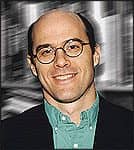Ottawa, Canada — The Canadian Association of Speech-Language Pathologists and Audiologists
(CASLPA) has submitted a position paper on Universal Newborn Hearing Screening (UNHS) as part of a national campaign to improve early identification of hearing loss in children.
The organization is calling for a Canada-wide adoption of UNHS programs in all provinces and territories. Approximately three to five per 1,000 babies born each year in Canada have some degree of hearing loss.
“UNHS programs use an inexpensive and non-invasive test that can quickly and accurately screen for hearing loss in newborns,”said CASLPA president Gillian Barnes, in a press statement. “The screening process is simple and should ideally be performed before a newborn leaves the hospital to head home for the first time. Plus, at about $35 per test, such screening is less expensive than a number of other current newborn screening tests, such as phenylketonuria.”
Historically, only babies with high-risk factors have been screened for permanent childhood hearing loss (PCHL). Studies estimate that nearly 50 per cent of infants with hearing loss have no high risk factors, therefore using risk assessment alone means as many as half of children with PCHL are missed.
Because it is very difficult to detect PCHL based on observation alone, the absence of UNHS programs inevitably delays the identification of affected children.
CASLPA, along with the Joint Committee on Infant Hearing in the US, the American Academy of Pediatrics and the National Institutes of Health recommend that UNHS programs be designed so that initial screening is conducted by 1 month of age, confirmation of hearing loss by 3 months of age and intervention beginning by 6 months of age.
Early identification is key to early intervention. UNHS, as a path to earlier identification, is the first step in the process to improve developmental (social, educational, cognitive etc.) outcomes in children with hearing loss and, in the long run, reduce economic burdens on the health and educational systems.
UNHS is increasingly becoming the standard of care in many developed countries, including the United States, where 95 per cent of newborns are screened with UNHS programs.
SOURCE: CASLPA




